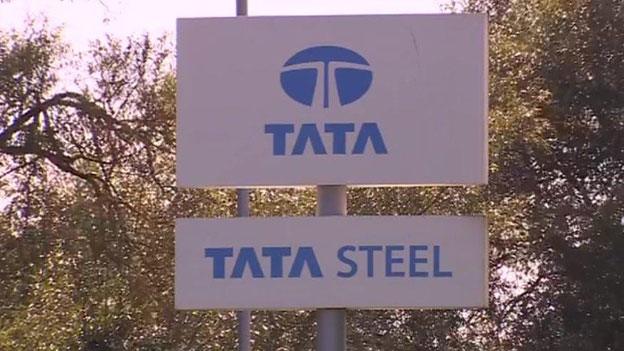Foundation industries 'decline' fear - Plaid Cymru
- Published
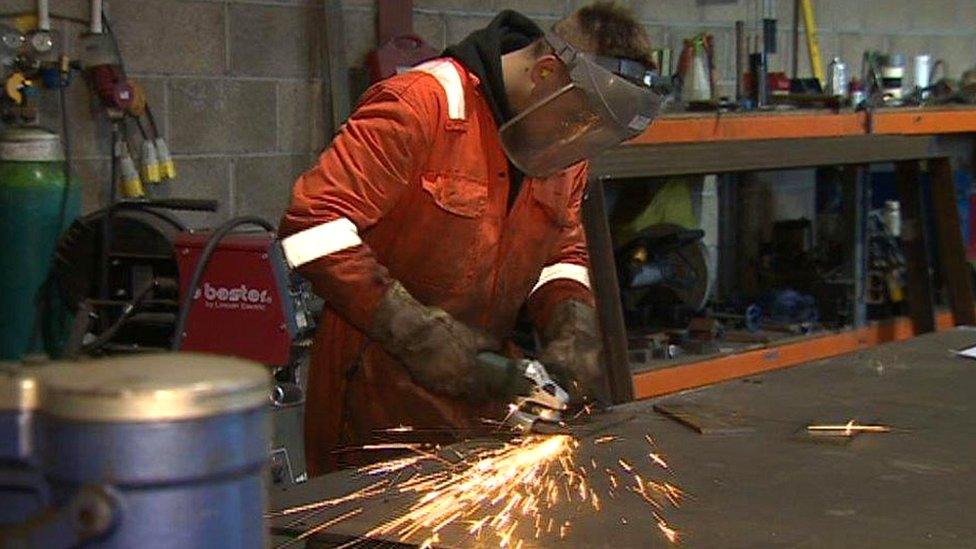
Pro Steel Engineering started in 2012 and has benefited from work in London
The crisis in the steel industry could signal potential problems across other core Welsh industries, Plaid Cymru has warned.
The party's economy spokesman Rhun ap Iorwerth warned steel's troubles were a "canary in the mine", warning of deeper problems across a range of industries.
These include basic metals, chemicals and wood.
The Welsh government called on Westminster to address the impact of high energy prices on industry.
The UK government has been asked to comment.
Plaid said Gross Value Added (GVA) figures - which measure the value of goods and services produced - show the so-called foundation industries in Wales have suffered a 39% decline in the five years to 2013.
Mr ap Iorwerth urged the Welsh government to take action to help industries combat high energy costs.
He said: "Figures show that the threat to our economy runs far deeper than steel, but affects the range of industries that our economy is built upon.
"This includes the chemical industry, other metals, and wood products. Wales' foundation industries have witnessed a steep decline."
He said UK government should also work with the EU to ensure maximum flexibility in use of procurement legislation so that they can better protect British industry.
A Welsh government spokesman said: "No-one has defended the steel industry more than the Welsh government.
"We have raised with the UK government over several years our concerns about the impact high UK energy prices are having on the competitiveness of our industries and again call on them to address this major problem.
"The economy minister has set-up an industry-led task group to gather examples of good procurement practices and to identify support other EU countries have provided to their steel industries."

Pro Steel has been working on the reconfiguration of the Olympic Stadium in London
Pro Steel Engineering in Caldicot, Monmouthshire, is only three years old but has benefited from contracts in London, including the new Olympic Stadium roof in London for West Ham United and strengthening the Hammersmith fly-over.
Director Richard Selby said: "We're fortunate we're expanding and are hoping to start recruiting in a couple of months and we have a full order book.
"We've had the ability to stay agile and seizing the opportunities.
"But the foundation industries need a lot more support, particularly with the energy costs we have, and we need for the Welsh government and Westminster to get behind them to help them thrive."
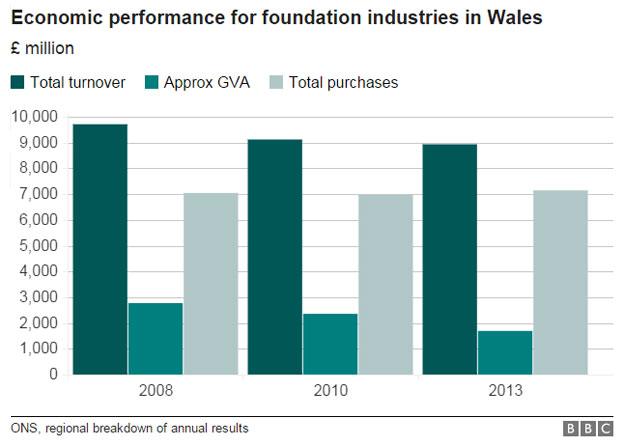
Economist Prof Calvin Jones, of Cardiff University, said the foundation industries were still important in terms of their high economic value and for being iconic.
But he said Wales' growth areas had been in retail, hotels, back-office financial services and the public sector.
"We have to think about how they will fulfil Wales' economic destiny as we'd like to see it," he said.
"Of course, on current structures they can't, they simply aren't like Tata which is a company which is incredibly valuable in so many ways.
"A back office for a bank simply can't do the same things for Wales, no matter how many bums on seats there are in those call centres. They don't provide the same jobs or a narrative for the Welsh economy that will give us a future vision."
Prof Jones said the steel industry in Wales had done relatively well to avoid the worst of the crisis so far.
"There have been big rounds of redundancies over the last 30 years and we've a very lean operation in Wales and geographically we're better placed than those steelworks in the north of England and Scotland."
- Published4 December 2015
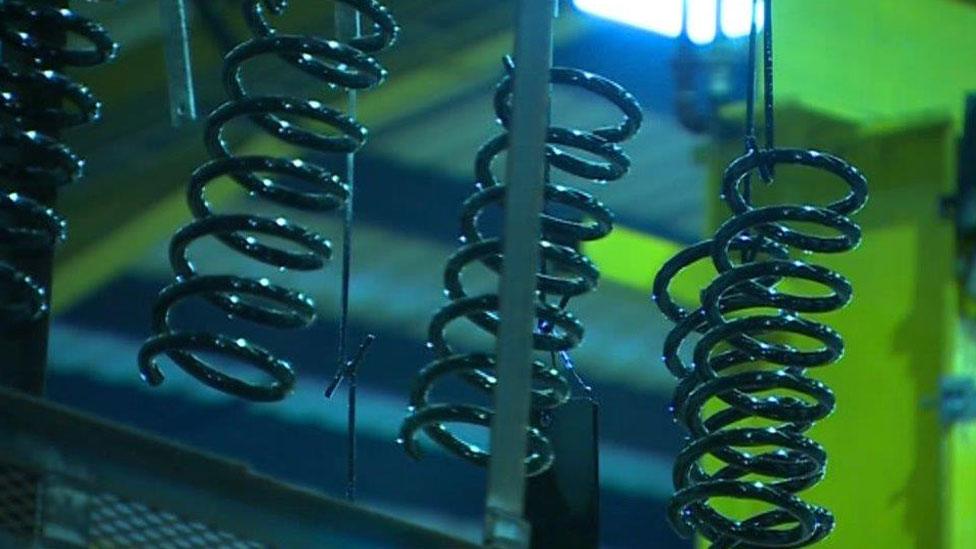
- Published5 November 2015
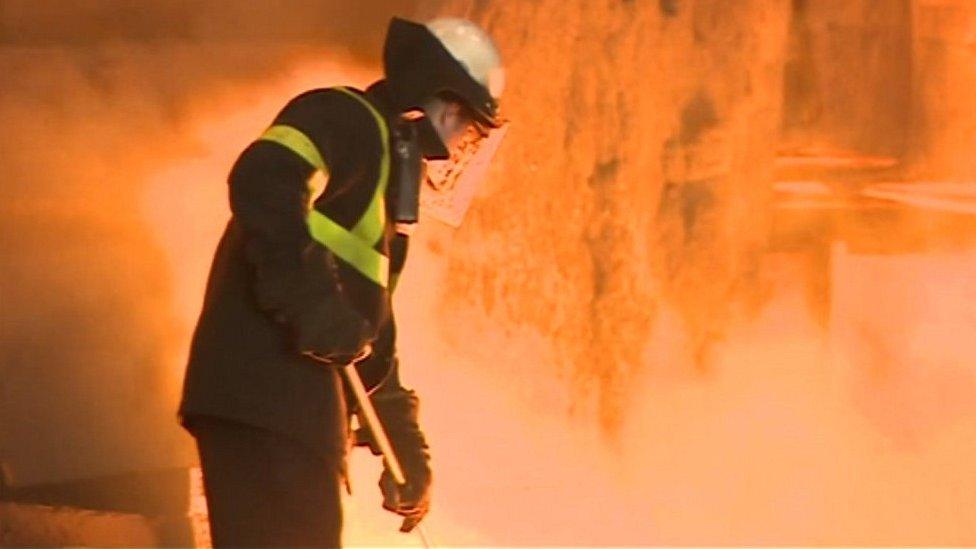
- Published27 August 2015
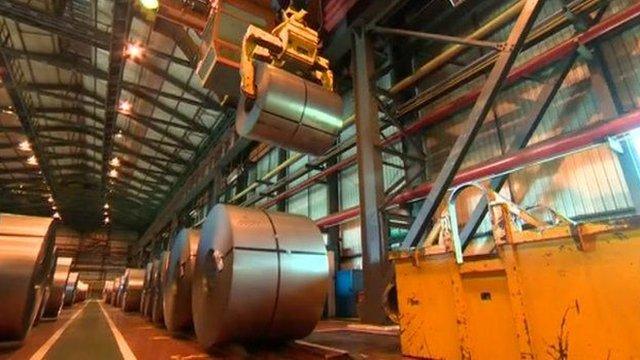
- Published28 October 2015
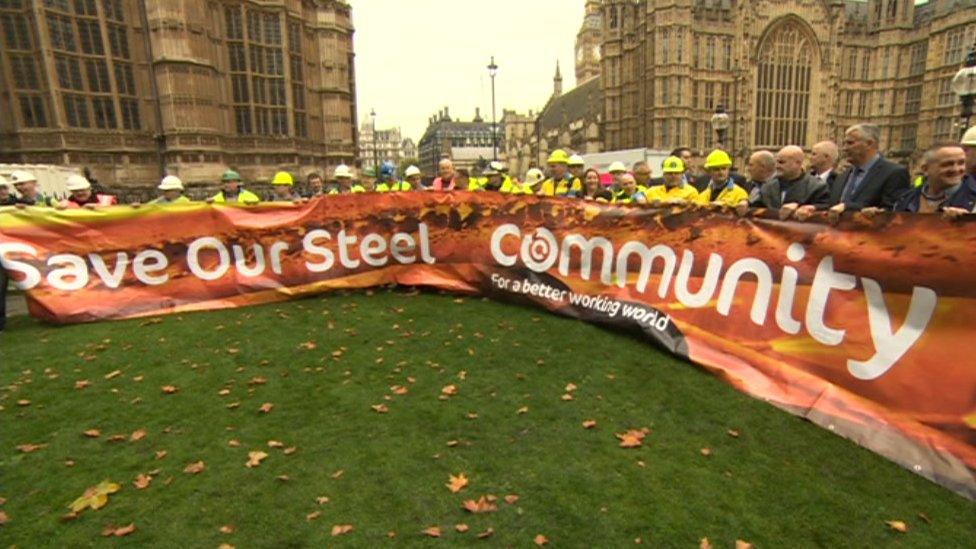
- Published26 August 2015
